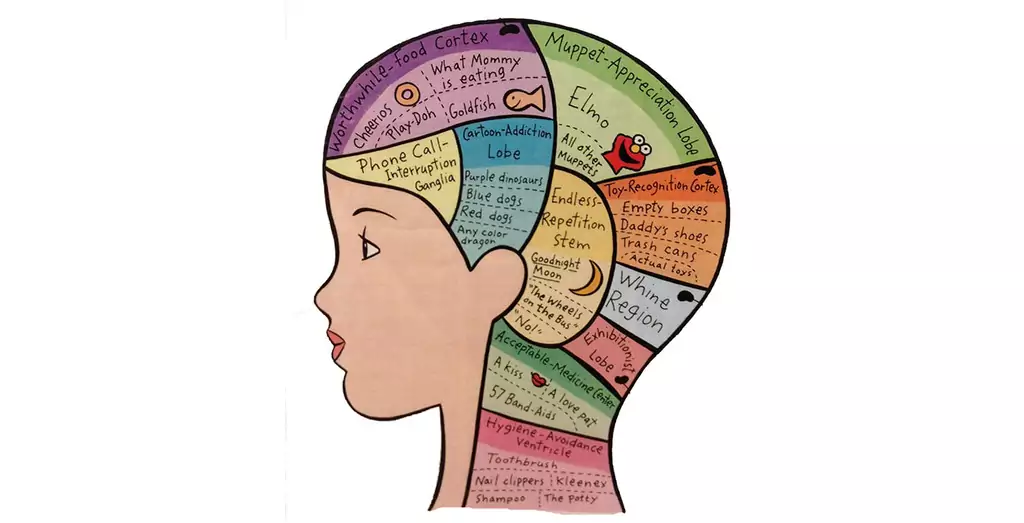Cognitive development is the process by which individuals acquire, process, store, and apply knowledge. It plays a crucial role in education, problem-solving, decision-making, and critical thinking. Understanding cognitive development allows educators to design effective teaching strategies that align with how students learn at different stages of their growth.
This guide explores major theories of cognitive development, key learning processes, and how educators can apply cognitive principles to enhance student learning.
What is Cognitive Development?
:max_bytes(150000):strip_icc()/2795457-article-piagets-stages-of-cognitive-development-5a95c43aa9d4f900370bf112.png)
Cognitive development refers to how a person’s thinking abilities evolve over time, including:
✔ Memory formation and recall
✔ Language acquisition
✔ Problem-solving and reasoning
✔ Attention and focus
✔ Metacognition (thinking about thinking)
It begins in infancy and continues throughout life, with significant changes occurring during childhood and adolescence.
Major Theories of Cognitive Development
Several psychologists have shaped our understanding of how humans learn and develop intellectually.
A. Jean Piaget’s Stages of Cognitive Development
Swiss psychologist Jean Piaget (1896–1980) proposed a theory that explains how children progress through four cognitive stages:
1. Sensorimotor Stage (Birth to 2 years)
✔ Infants learn through sensory experiences and movement.
✔ Object permanence develops (understanding that objects exist even when out of sight).
2. Preoperational Stage (2 to 7 years)
✔ Development of language and symbolic thinking.
✔ Thinking is egocentric (children struggle to see perspectives other than their own).
✔ Lack of logical reasoning.
3. Concrete Operational Stage (7 to 11 years)
✔ Logical thinking begins, but only in concrete, tangible situations.
✔ Understanding of conservation (quantity remains the same despite changes in shape).
4. Formal Operational Stage (12+ years)
✔ Abstract and hypothetical thinking develops.
✔ Ability to think critically and reason about complex concepts.
Application in Education:
- Use hands-on activities for younger children.
- Encourage problem-solving and abstract thinking in older students.
B. Lev Vygotsky’s Sociocultural Theory
Russian psychologist Lev Vygotsky (1896–1934) emphasized the role of social interaction in cognitive development.
Key Concepts
✔ Zone of Proximal Development (ZPD): The gap between what a learner can do alone vs. with guidance.
✔ Scaffolding: Providing temporary support until the student masters a skill.
✔ Language and culture shape thinking.
Application in Education:
- Teachers should guide students through challenging tasks.
- Encourage peer collaboration and discussion.
C. Information Processing Theory
This theory compares the human brain to a computer, describing how we process and store information.
Stages of Information Processing:
- Sensory Input: Information enters through the senses.
- Working Memory: Temporary storage for active thoughts.
- Long-Term Memory: Knowledge is stored for future retrieval.
- Retrieval & Application: Applying knowledge to new situations.
Application in Education:
- Use visual aids, repetition, and chunking to help students retain information.
- Teach active recall strategies to improve memory.
D. Bloom’s Taxonomy: Levels of Cognitive Learning
Developed by Benjamin Bloom (1956), this framework categorizes cognitive skills from basic to advanced thinking.
Remembering – Recall facts and basic concepts.
Understanding – Explain ideas and summarize.
Applying – Use knowledge in real-life situations.
Analyzing – Break information into parts and explore relationships.
Evaluating – Form opinions and make judgments.
Creating – Generate new ideas or original work.
Application in Education:
- Encourage higher-order thinking (analysis, evaluation, and creativity).
- Use project-based learning to enhance application skills.
How Cognitive Development Impacts Learning
A. Memory and Learning
- Short-term memory stores limited information temporarily.
- Long-term memory retains knowledge through repetition and association.
- Mnemonics, storytelling, and active recall enhance memory retention.
B. Attention and Focus
- Young children have shorter attention spans, requiring interactive lessons.
- Older students benefit from structured note-taking and discussion.
- Minimizing distractions improves concentration.
C. Problem-Solving and Critical Thinking
- Younger students rely on trial-and-error learning.
- Older students develop hypothesis-based reasoning.
- Encourage real-world problem-solving activities to strengthen skills.
D. Metacognition (Thinking About Thinking)
- Helps students self-monitor their learning progress.
- Improves study habits and self-regulation.
- Teach students to use reflection journals and goal-setting exercises.
Applying Cognitive Development Theories in Education
A. Strategies for Early Childhood (Ages 3-7)
- Use play-based learning (blocks, puzzles, storytelling).
- Encourage exploration and imagination.
- Introduce simple problem-solving activities.
B. Strategies for Middle Childhood (Ages 7-12)
- Use visual organizers (charts, diagrams).
- Encourage group discussions and teamwork.
- Teach cause-and-effect relationships.
C. Strategies for Adolescents (Ages 12-18)
- Focus on critical thinking and debate.
- Use real-world applications (case studies, experiments).
- Encourage self-directed learning and research projects.
Modern Approaches to Cognitive Development in Education
A. Personalized Learning
- Adaptive technology adjusts to individual student needs.
- Project-based learning allows students to explore topics at their own pace.
B. Growth Mindset (Carol Dweck’s Theory)
- Encourage effort over ability (“I can improve with practice”).
- Teach resilience and persistence in learning challenges.
C. Technology & Cognitive Development
- Gamification enhances engagement.
- AI-driven tutors provide personalized feedback.
- Multimedia learning strengthens memory and understanding.
Common Challenges in Cognitive Development
- Learning Disabilities (Dyslexia, ADHD, etc.) – Require specialized strategies.
- Lack of Motivation – Can be improved with intrinsic rewards and real-world connections.
- Overloading Memory – Avoid excessive information; break content into manageable chunks.
Conclusion: The Future of Cognitive Development in Education
Cognitive development is at the heart of learning, shaping how students process, retain, and apply knowledge. By understanding key theories and practical strategies, educators can create more effective, engaging, and personalized learning experiences.
With advances in technology, neuroscience, and educational psychology, the future of learning is becoming more adaptive and student-centered, ensuring that all learners reach their full cognitive potential.
Key Takeaways:
- Cognitive development evolves through stages, from simple to complex reasoning.
- Piaget, Vygotsky, and Bloom’s theories provide frameworks for understanding learning.
- Attention, memory, and problem-solving play crucial roles in education.
- Personalized learning and technology are shaping modern education.
By applying cognitive principles in the classroom, we can foster a generation of critical thinkers, problem solvers, and lifelong learners. 🧠📚✨

